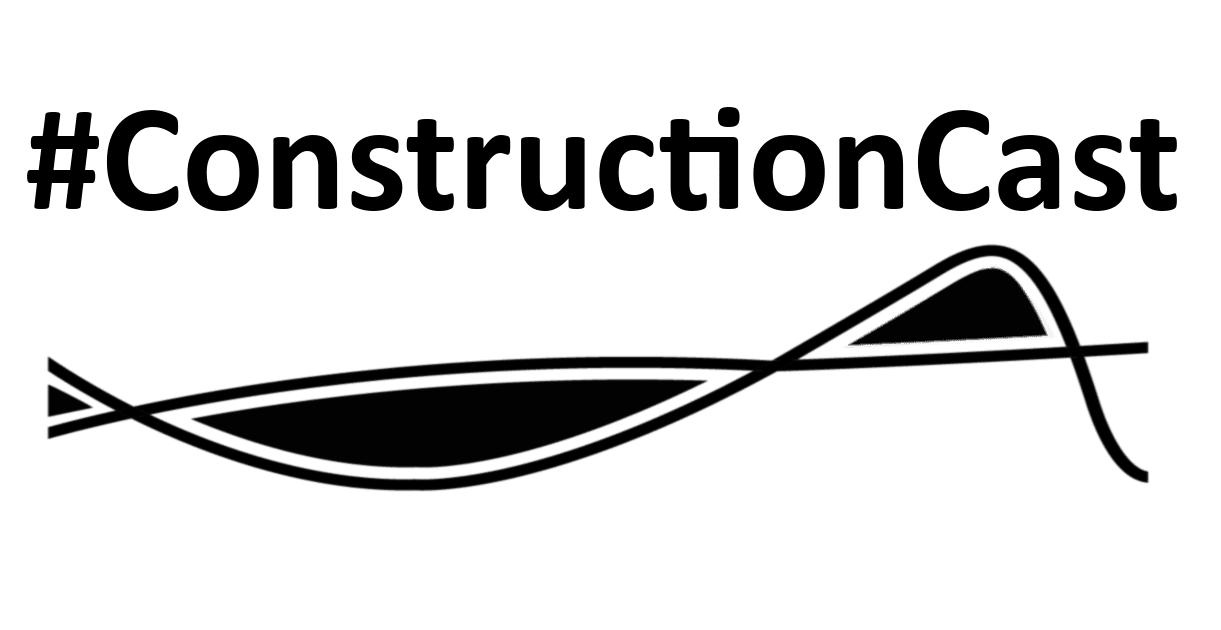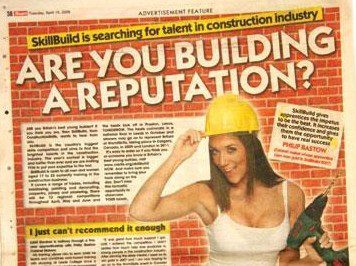This month we were privileged and honoured to have Sandi Rhys Jones OBE join the construction cast hotseat for a chat. Sadly Annie couldn’t be with us as she was with the other finalists of Women in Construction and Engineering awards, so Stuart took the lead…
Things Are Better
Stuart and Sandi started by discussing what the construction industry is like for women now compared to when Sandi started. The significant change from Sandi’s point of view is that there is an openness to talk about what’s wrong now that we haven’t had before. When asked to present on the importance of diversity and women in the workplace it was a subject guaranteed to clear out a conference hall.
Sandi recalls an opportunity to set up a panel on an international construction platform in London. She was given full reign to hold a session on improving construction performance, delivering the best and how to do it. Sandi took the opportunity to create a panel made of an international mix of women. The theme was How to build a safe Olympics, every member of the panel had a role in either delivering an Olympics or as a participant. After the session Sandi was approached and questioned why all the panellists were female. Her answer was simply because they were the best fit for the job.
When she embarked on her career, she was accustomed to being the only woman in the room. Most memorably being the only female at an annual FIDIC conference of around a thousand people. Now Sandi notes that the split at events is close to half and half.
The improvements to the industry have led to better performance and conditions of work. But we still have a way to go to show that it is a brilliant industry and encourage more people to join.
The Economic Climate & Possible Downturn
On the current economic and political situation, Sandi feels things are messier now than on previous occasions. She has run a business steadily through three recessions. The difficulties she faced taught her the importance of keeping people. When the work starts flowing again you need the team you know and trust to hit the ground running. Whilst we are in this particularly volatile climate, you need that core team.
There have been discussions of a skills shortage in the construction industry for a while. Sandi was told during a recession that it was ‘disgraceful that she would try to attract people to the industry because they won’t have a job’. But if we don’t hire people now, we will be sitting in the same place asking why we have no one to do the work.
There are many challenges for recruitment. One of the major issues when targeting women to recruit is the construction industry’s reputation. The industry has a perception of being dirty, late, costly etc. What we should be highlighting are the incredible projects, rather than focusing on the negatives.
We don’t just need to recruit people familiar with modern building techniques. We also need traditional building skills, as most homes in the UK were built before 1919, with 39% of homes being built before 1939. New recruits need the skills to work both on new build, and innovative skills to update and improve buildings for sustainability and low carbon.
Sandi suggests one way to tackle this skills shortage is to entice people from a range of backgrounds. We should look not just to those with a construction qualification but include those from other fields. By advertising to younger generations with a wider skillset, construction will have a diverse set of skills driving it.
Communication and Collaboration
Sandi believes the industry has a lack of clear communication. She says we should sustain the relationships we have on policy and have realistic discussions on tendering and procurement etc.
One of Sandi’s proudest achievements is developing and running the Women in Property mentoring programme for 11 years. Sandi recently stepped down from this role in early 2023 to focus on her upcoming term as president of the CIOB which she will be taking up this summer. The programme focused on mentoring members to help develop careers not to just tick some boxes to be chartered. This would involve matching mentees with useful mentors where there would be no competitive nature but a focus on growth and learning. For example, this could be matching a surveyor with a client or a transport engineer with a lawyer.
Inclusivity
Stuart asked – have we improved since the famous headline of 2008 (see image), and other similar headlines?
Sandi notes that we don’t get the overt advertising so much anymore. We are much more subtle now. The industry has learned to be more conscious of language. There’s a different demographic now with families and more women. Advertising has had to adjust to this change in their audience and keep up with the changes. Sandi has noticed a change in men in the industry to say they won’t put up with it anymore.
Sandi also notes a very significant and perhaps troubling move. We have shifted from an industry that could kill you through dangerous practices, to an industry where people commit suicide. The reasons for this level of mental stress are countless but a few include the challenging conditions of work, a lack of respect for construction workers, and long hours leading to an unhealthy work-life balance. Something very important now is to raise the positive image of construction so that workers and teams really value their work and retain their self-esteem.
Sandi Rhys Jones & Presidency at CIOB
To become president of the CIOB you must complete one year as a vice president and then another year as a senior vice president. That time is vital to familiarise yourself with the teams and people involved, as well as their backgrounds and roles.
Starting in June 2023, Sandi Rhys Jones’ major goal is to implement real joined-up thinking throughout the industry. CIOB have already begun implementing this by having a memorandum of understanding with other institutes and roundtables. Sandi expresses that one brilliant thing about this is there are so many women. Many of the major institutions have women CEOs and presidents opening the opportunity to shift the dialogue.
The CIOB has a clear 5-year plan to address the people and skills gaps in the industry, the quality and safety of work conditions and practices and focus on the sustainability of the industry as well as an environment which Sandi is particularly passionate about. To achieve this the CIOB needs to look at how we operate and engage with policymakers and the people we don’t talk to directly. Sandi emphasises this by saying she doesn’t want to be seen by just people already interested in the construction industry. She wants to be talking in unexpected places.
Diversity and inclusion are something Sandi has worked on for her whole career. The CIOB’s diversity and inclusion charter (https://www.ciob.org/specialreport/charter/diversityandinclusion) recognises that not everyone is a tier-one contractor. This charter is designed for everyone in the industry and not just those with fewer resources. Ask questions and call for support.
Huge thanks to Sandi for joining us and keep an eye on the website for the next episode!


